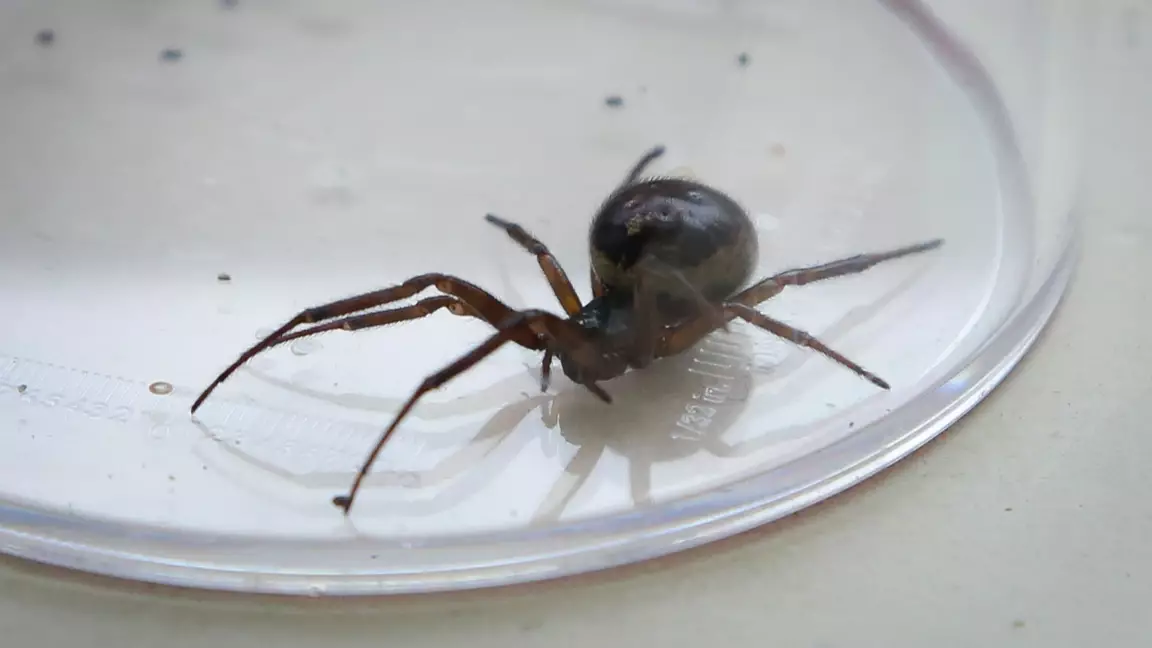
Pretty much all spiders freak us out. Even though we know most of them aren't in any way dangerous, which means our fear is perhaps a little irrational, they just look menacing. Too many eyes, too many legs. No thank you.
But people in the UK have had even more of a panic lately, thanks to an eight-legged freak resembling the deadly black widow spider.
Advert
Thankfully, what people are actually spotting is a noble false widow (Steatoda nobilis) rather that the black widow herself, but that doesn't mean it's not bad news.
While its bite is not deadly - phew - it is painful, having been compared to a severe bee or wasp sting, so you're still probably better off avoiding it if you see one.
The noble false widow is native the Canary Islands, and has been present in small numbers in the South of England for over 100 years.
But now experts reckon the population is spreading rapidly, with University of Manchester biologists saying they could prove a threat to native wildlife species.
Large numbers of the spider have been spotted in schools and other public spaces.
Advert
Professor Rainer Breitling, from The University of Manchester, said they have been using sightings to work out a computer model of where the noble false widow will 'invade' next.
The model successfully predicted that the species would be found in Normandy, France - which was then confirmed following a field trip to the area.
Breitling said: "These are areas that are home to a wide range of vulnerable native species.
"So the potential introduction of Steatodanobilis, which can overcome prey much larger than its own size, is quite worrying.
Advert
"We think that it's likely that these animals get about by hitching a lift on of ornamental plant trade or tourism, rather than banana imports as previously thought.
"So more careful monitoring of plant imports could be useful to control the spread of this species and other invasive spiders.
"Although its bite can be very painful, comparable to a severe bee or wasp sting, there are no confirmed cases of serious medical consequences from a noble false widow bite.
"However, the intense public interest created by sometimes rather exaggerated press coverage is now helping our research.
Advert
"Members of the public have been contributing their observations to a large dataset of false widow records for the British Arachnological Society's Spider Recording Scheme."
Researchers from The University of Manchester, German State Museum of Natural History Karlsruhe and Trier University scientists published their findings about the spread of the False Widow in the journal NeoBiota.
In the paper, they describe how they used use computer modelling to predict favourable habitats for future false widow invasions, based on present occurrence patterns - with the Mediterranean islands, southern Australia, large parts of New Zealand and South Africa also seem to be likely targets for future expansion.
Professor Breitling added: "The University of Manchester has long been a hotspot of spider research in the UK.
Advert
"It houses one of the most diverse spider collections at the Manchester Museum.
"Our researchers at the university are working on topics ranging from fossil spiders in amber to the mating dances of jumping spiders to the use of bacteria-produced spider silk for biotechnology."
Featured Image Credit: PA